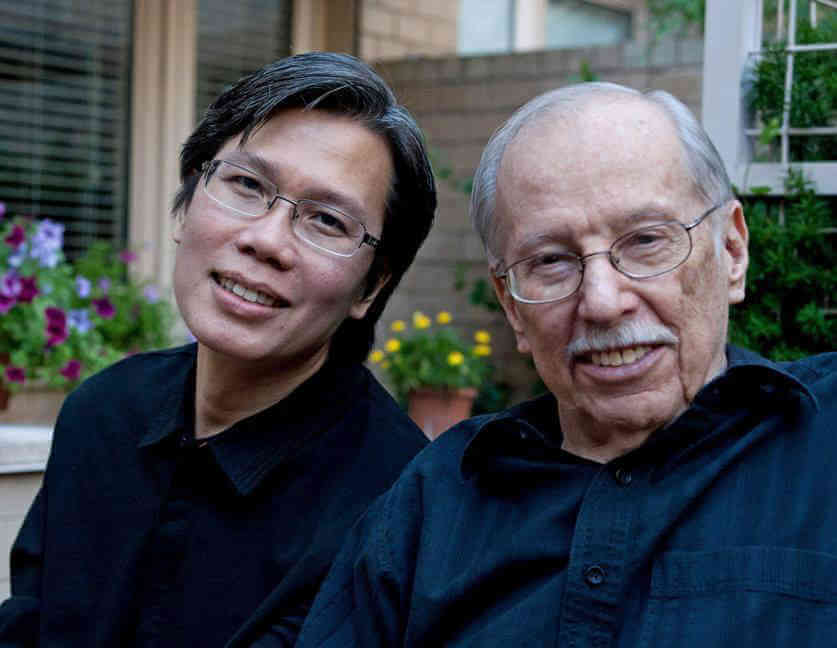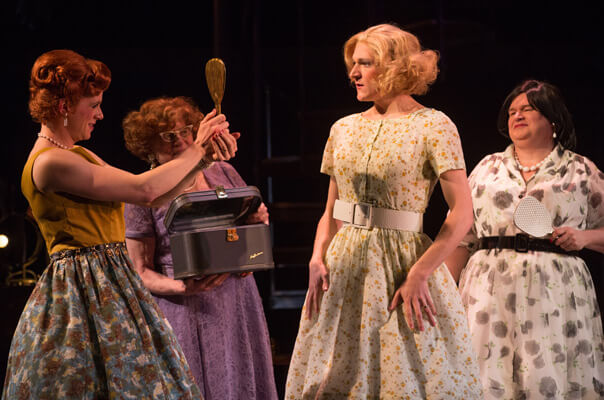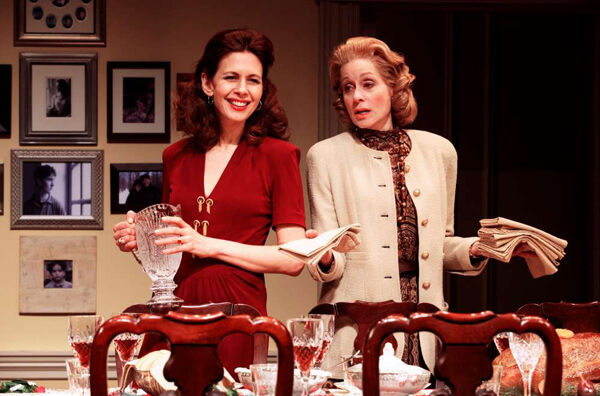John Glines had already made lots of LGBTQ theater history when he became the first person to thank a same-sex partner at the Tony Awards, in 1983, accepting the honors for his production of Harvey Feirstein’s “Torch Song Trilogy.” Glines, who died from complications from surgery and emphysema at 84 on August 8 at his home in Bangkok, Thailand, started a gay theater and arts group with Barry Laine and Jerry Tobin in 1976 in New York, daring to call it The Glines and producing such out lesbian and gay playwrights as Jane Chambers, Robert Patrick, Doric Wilson, and Fierstein prior to their more mainstream success.
In 1985 he told Playbill, “Nine years ago, [gay] playwrights and actors didn’t use their own names; a gay play meant something pornographic. I thought by using my own name, it would be a forerunner — it would force others to do the same.”
Fierstein, on Facebook, wrote, “John Glines gave the world, ‘IT’S NOT EASY BEING GREEN’ [from ‘Sesame Street’] & he gave me my career. Producing ‘TORCH SONG TRILOGY’ despite all odds… Not resting until he’d moved it to Broadway… That took vision, guts, determination, and all the money he’d made from ‘Sesame Street.’ Bravo, John.”
Prior to his theater work, Glines worked on both CBS’ “Captain Kangaroo” show and PBS’s “Sesame Street.”
When “Torch Song” won Best Play just two years after public health recognition of the AIDS crisis, Glines said on the national telecast, “This is a stupendous and miraculous moment, and I would like to accept this in memory of Jane Chambers and Billy Blackwell and in honor of all my brothers and sisters.” After thanking Fierstein and others in the company, Glines concluded, “And lastly but most importantly to the one person who believed and followed the dream from the very beginning who never said, ‘You’re crazy and it can’t be done,’ I refer to my partner and my lover, Lawrence Lane.”
Writing last year in The New York Times, Stuart Emmrich said he and his partner, Barry, “were shocked. It was the first time either of us had seen a real-life gay man openly acknowledge a romantic relationship on network TV, much less on an awards program.”
The Times did not cover Glines’ historic speech in its next day coverage, but did quote Natalia Makarova who won for Best Supporting Actress in a Musical for “On Your Toes” thanking her husband “who didn’t help much but wasn’t in the way.” And the newspaper noted that Tommy Tune, who won two Tonys for “On Your Toes,” wore “a bright pink shirt and pink bow tie” and thanked his sister.
The then-closeted gossip columnist Liz Smith in her widely read column pronounced Glines’ speech “disgusting.”
When Glines and Lane returned to Brooklyn that night, his neighbors were there to cheer him. But two days later his curb was spray-painted with “Die, Faggot. Die” and he got a death threat on his answering machine.
“I had thanked my lover on television,” Glines told The Los Angeles Times in 1989. “There are people who bash fags, kill them. Sure, I was frightened. How do you get over it? You read Martin Luther King and think, ‘My God, a man lived with that his entire life.’ So you do what you have to do. I knew what I was saying on television was crucial to gay people. And on the other end of the death threats was the outpouring of mail from all over the country — people saying how much what I’d done had meant to them.”
Glines went on to produce the first AIDS-themed play on Broadway, William Hoffman’s “As Is” in 1985, winning another Tony nomination.

With AIDS raging in 1987, he founded Stamp Out AIDS to raise a million dollars to fight the epidemic — selling stamps that people could use like Christmas or Easter Seals. He enlisted the participation of stars such as Helen Hayes, Pearl Bailey, Vivian Blaine, Ellen Greene, Richard Dreyfuss, and Estelle Getty.
In 1992, Glines was a founding board member of Broadway Cares/ Equity Fights AIDS, whose longtime executive director, Tom Viola, wrote on Facebook, “John will always be a part of our legacy.”
Singer/ composer Tom Wilson Weinberg wrote, “It was my good luck to work with John and The Glines in the late ‘70s and then again in the early ‘90s. His intellect, theater savvy, hands-on participation, and good communication were inspirational.”
John Glines was born October 11, 1933 in Santa Monica, and he graduated from the Yale School of Drama in 1955. After his work in children’s television, he turned to playwriting, including “The Desert of My Soul” in 1976 and the long-running musical “Gulp!” in 1977 with Robin Jones and Stephen Greco.
At The Glines he put on Chambers’ “Last Summer at Bluefish Cove,” Wilson’s “A Perfect Relationship” and “Forever After,” Robert Patrick’s “T-Shirts” and “Untold Decades,” and “An Evening with Quentin Crisp” among many others, including his own “Men of Manhattan,” a collection of 10 gay vignettes. The Glines also produced the documentary “Hero of My Own Life” about living with AIDS in 1986.
Among the actors and writers who worked with The Glines were Matthew Broderick, Charles Busch, Allen Ginsberg, Lou Liberatore, Jonathan Hadary, Armistead Maupin, Pat Bond, Felice Picano, Ned Rorem, Vito Russo, Robin Tyler, Audre Lorde, Edmund White, Dan Lauria, James Purdy, John Rechy, Fisher Stevens, and Jack Wrangler.
In 1994, he produced Howard Crabtree’s legendary gay costume farce, “Whoop-Dee-Doo!,” winning his third Drama Desk Award.
Philip Crosby, managing director of the Richmond Triangle Players, an LGBTQ theater group now in its 25th year in Virginia, wrote, “He enabled all the LGBTQ theaters across the country to have the courage to produce the works we do.”
Glines is survived by Chaowarat Chiewvej, a former Buddhist monk. They married in New York in 2014. A memorial service is being planned, time and place to be announced.
Richie Jackson, one of the producers of the Broadway revival of “Torch Song” this fall, told Playbill that he once pitched an NYU student production to Glines and Lane, who “wanted to support a young gay theater student attempting to produce gay theatre.” Jackson called Glines “a fierce activist and his weapon of choice was art.”





































